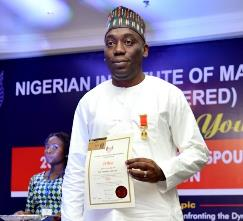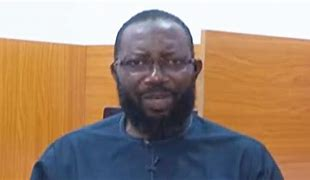The Executive Director, Operations and Technical Services, Tantita Security Services Nigeria Limited (TSSNL), Captain Waredi Enisuoh has made public how coastal communities in the country can earn not less than N320 million annually from carbon credits.
He revealed that the discovery on how the coastal communities can benefit from carbon credits was based on a research that was carried out by TSSNL to change the present poor narratives of the residents in the area.
Enisuoh stated this in a paper he presented at the just concluded two day annual symposium and workshop with the theme: “Achieving Blue Growth in a Changing Climate-Integrating the Coastal Communities” organized by African Marine Environment Sustainability Initiative (AFMESI) at Best Western Hotel, Victoria Island, Lagos.
He averred that TSSNL realized the importance carbon credits in a bid to provide solutions to the gross pollution in the oil and gas rich Niger-Delta region.
Enisuoh who was prior to his appointment in TSSNL was a Director in the Nigerian Maritime Administration and Safety Agency (NIMASA) revealed that one mature tree can absorb 80kg of carbon monoxide from the atmosphere in a year.
He also disclosed that several developed countries have adopted the carbon credit initiative to preserve their environment their present and future generations.
His words: “If we allocate 50,000 trees per coastal community, one carbon credit is equivalent to one ton of carbon dioxide which is valued at $50. CO₂ absorption per year is equal to 80kg multiple by 50,000 trees equals to 4,000,000kg. Thus earning 4,000,000kg multiply by $50/1,000 equals to $200,000 per year. $200,000 multiply by N1, 600 equals to N320, 000, 000 million annually”.
The TSSNL Executive Director expressed regret that despite the recent signing of the Climate Change Act by Nigeria, the Federal Government is still investing in the acquisition of diesel-powered trains.
He also revealed that the Nigerian Ports Authority (NPA) can exchange carbon dioxide for funds that can be channeled into port automation.
He enjoined maritime operators to approach the innovative concept with a sincere concern about the environment and not pecuniary interest.
While declaring the workshop open, the Minister of Marine and Blue Economy, Alhaji Adegboyega Oyetola encouraged the participants to share viable suggestions to addressing the numerous challenges in the blue economy.
Represented by Professor Stephen Fakinlede, the minister reiterated the Ministry’s commitment to safety and sustainable blue economy.
The President of AFMESI, Dr. (Mrs.) Felicia Mogo in her welcome address maintained that the initiative is focused on establishing innovative financing mechanisms that support blue economy projects across Africa.
Her words: “We aim to attract investment in sustainable ocean industries, from eco-friendly aquaculture to renewable marine energy, and to ensure that these investments benefit the communities most in need. We will work with financial institutions, government agencies, private organizations, among others to achieve this goal.”
“Over the years, AFMESI has championed numerous projects and initiatives in Nigeria, and across Africa, aimed at protecting our marine ecosystems, empowering coastal communities and advancing policy frameworks that support sustainable marine practices”.
Not a few stakeholders in the maritime industry attended the workshop. These include the Managing Director, National Inland Waterways Authority (NIWA), Mr. Bola Oyebamiji; Secretary General, Memorandum of Understanding on Port State Control for West and Central African Region (Abuja MoU), Captain Sunday Umoren; Managing Director, Lagos Free Zone (LFZ), Barrister (Mrs.) Adesuwa Ladoja; and the President, Ocean Ambassadors Foundation (OAF), Hon. Olaitan Williams.











